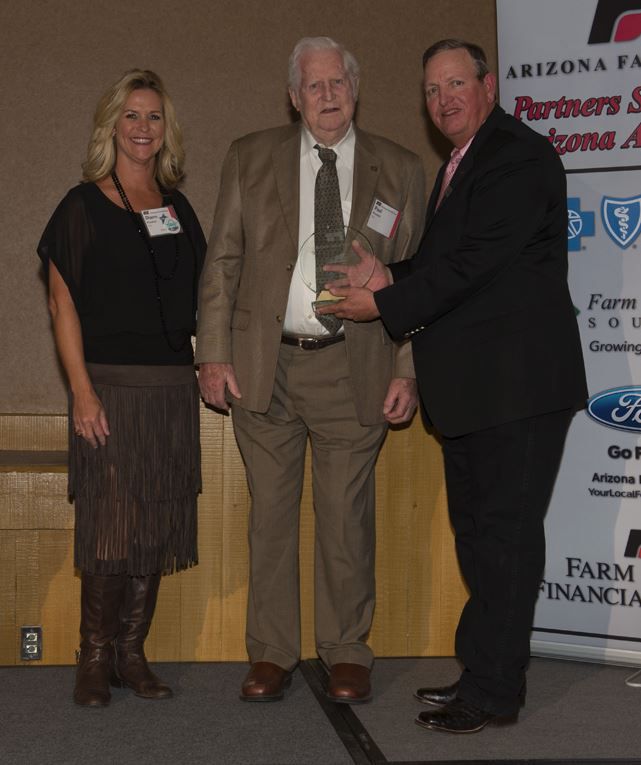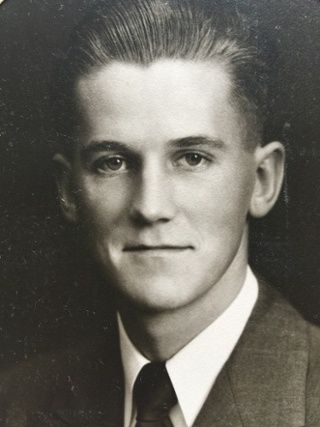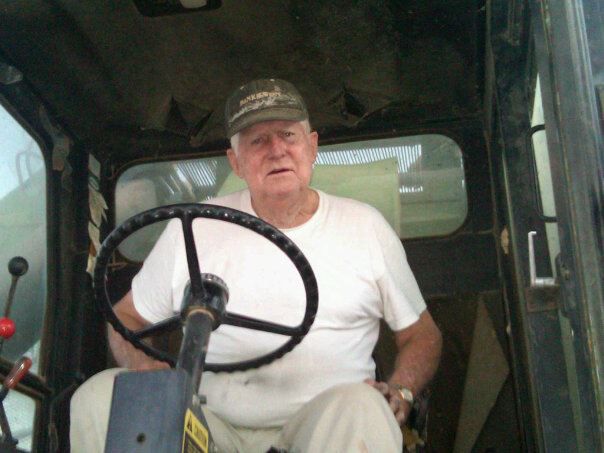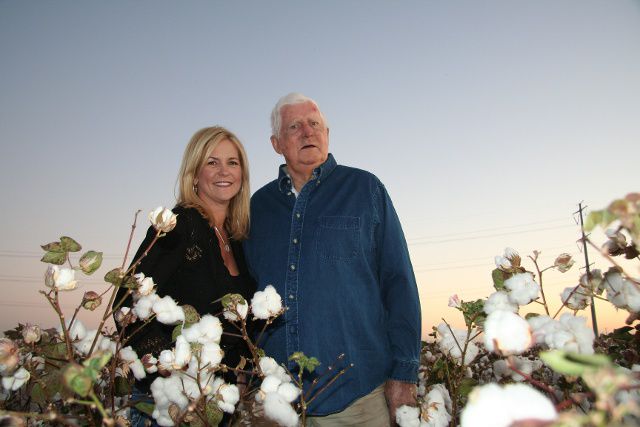Meet Arizona Agriculture’s Prechel Family
Published
1/26/2016
By Julie Murphree, Arizona Farm Bureau Communication Director: In the year the Great Depression would hit, Paul Prechel was born on February 9,

Farming for more than 50 years, Paul Prechel received Arizona Farm Bureau's Heritage Award November 2015 in recognition of his contributions to the agriculture industry and is service to Farm Bureau and other organizations. Here with his daughter, Diann, Paul encourages young farmers to keep up-to-date of policy issues and farm business issues to stay ahead of the curve.
After graduating from the U of A, Paul and Nancy moved to Blythe, Arizona. In late 1958, they moved to Coolidge to farm on Nancy’s father’s land and here is where the family established deep roots in this Arizona soil. In fact, Paul has lived in the same home since moving to Coolidge. In 1970, they added a daughter, Diann, to the family tree. Since he began his life-long career as a farmer, he was a true “hands on” farmer until he retired just a few years ago. Both his children became involved in the farming and operated together on the family homestead Paul and Nancy began in

From his youth, Paul knew he wanted to be in agriculture.
Paul became a member of River Co-Op gin in 1959, held offices within the board of directors and in 1995 had the “first bale” delivered to the gin with his daughter, who joined the farm full time in 1993. He also became a director
He is well known as the “water guy,” especially when he served on the Coolidge City Council over a span of 23 years, serving as the water voice on the council. He has been a member of Christ Lutheran Church in Coolidge for over 50 years serving as treasurer for 30 of those years. His involvement in community and his efforts to strengthen the agriculture community reflect an ongoing and outstanding commitment to all who live and work in Pinal County. In doing so, he exemplifies the purpose of Farm Bureau and those that it serves.
Most notably, a year before his retirement he had a second knee replaced, physical therapy, arm surgery and had undergone radiation for skin cancer all in a span of two months and yet he climbed back on his
This last November, Paul received Arizona Farm Bureau’s Heritage Award for his lifelong career in farming and ongoing dedication to the Farm Bureau and other agriculture organizations.
An interview with Paul Prechel, Coolidge, Arizona.
Part of an ongoing series about Arizona farming and ranching.
Tell us about your farm: I have been farming in the Coolidge area for the last 50-plus years. I have operated farms from 160 acres to over 900 acres in size growing cotton, alfalfa, wheat, barley, and grain sorghum. In about 1993 I formed Cotton & Bailey Farms with my daughter, Diann. We sent our cotton to River Coop Gin to be ginned and then on to Calcot, the cotton marketing cooperative. The wheat, barley, and milo we grew went to Arizona Grain, a cooperative in Casa Grande, then to market. The alfalfa hay we raised was sold locally to horse people and to dairies or feed stores.

Right up to the last year of his farming, you could find Paul in the tractor's seat. Here, he's harvesting his last crop in a cotton picker that happened to be missing the window in the picker's cab.
What changes have you seen
What is your educational background? I graduated from high school in 1947, third in the class. I went to Washington State College and graduated in 1951 with a bachelor’s in General Agriculture. I later worked for the Farmers Home Administration for a few months before going into the U.S. Air Force where I was trained as a Navigator-Bombardier in a B-26 aircraft. I spent a year in Korea and was discharged after four years. I returned to the FHA for a few months before enrolling at the University of Arizona in Tucson. I spent two years there and earned
What are your community activities? While in grade school, I spent four years doing 4-H work. Later on in high school I spent four years in FFA. I have been a member of the Lutheran Church for over 50 years, serving in various capacities such as a Sunday school superintendent, secretary, and treasurer. I have been a member of the River Cooperative Gin for over 50 years, serving many years on the board of directors, as secretary, vice president, and president. I was a director to the Arizona Cotton Growers for over 30 years. I spent three years on the Arizona Research and Protection Council, and was a delegate
What do you love the most about farming, ranching, or the agriculture industry in general? Some of the advantages of being a farmer are: you are outside working for yourself, doing what you want to do when you want to do it (within the limits of planting schedules, harvesting times, limits of weather, and irrigation times). There are good times, bad times, some years you make money, and some years you lose money.
What do you enjoy doing, and what is one fact or achievement that nobody knows about you? I enjoy social activities, family and going out to eat. In my spare
Why are you a Farm Bureau member? I am a member of Farm Bureau because it is a good organization of farmers who need to band together so that their voice can be heard on the local level and the national level for the good of all farmers.
How will the next generation of agriculturalists have to operate? The next generation of farmers will have a new world to work in. Things are moving fast in scientific advances, so new things will be coming along and they will have to be able to change and adapt. In

Daughter, Diann, and Paul standing in their 2011 cotton field. It happened to be the last crop of cotton they'd harvest. Diann remains active volunteer participant in the industry.
What is the best business advice that you’ve ever received and/or given? Advice to young farmers: pay attention to what you are doing. In some